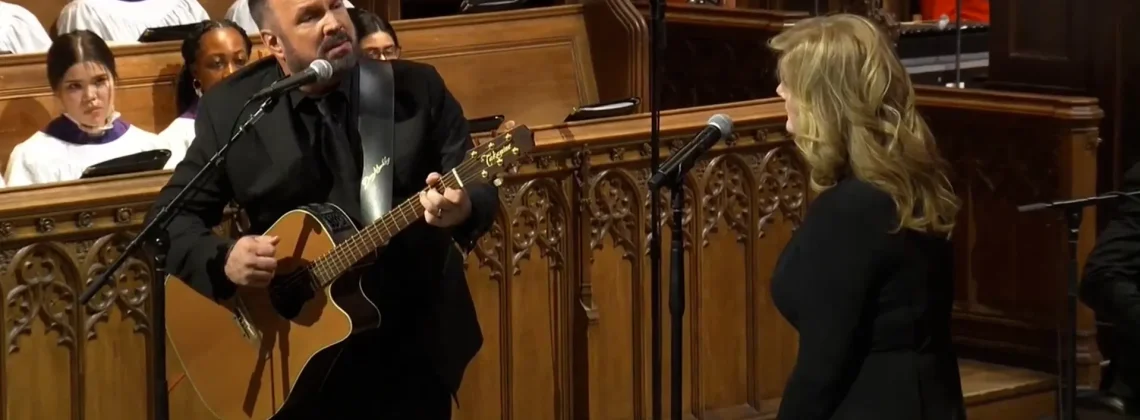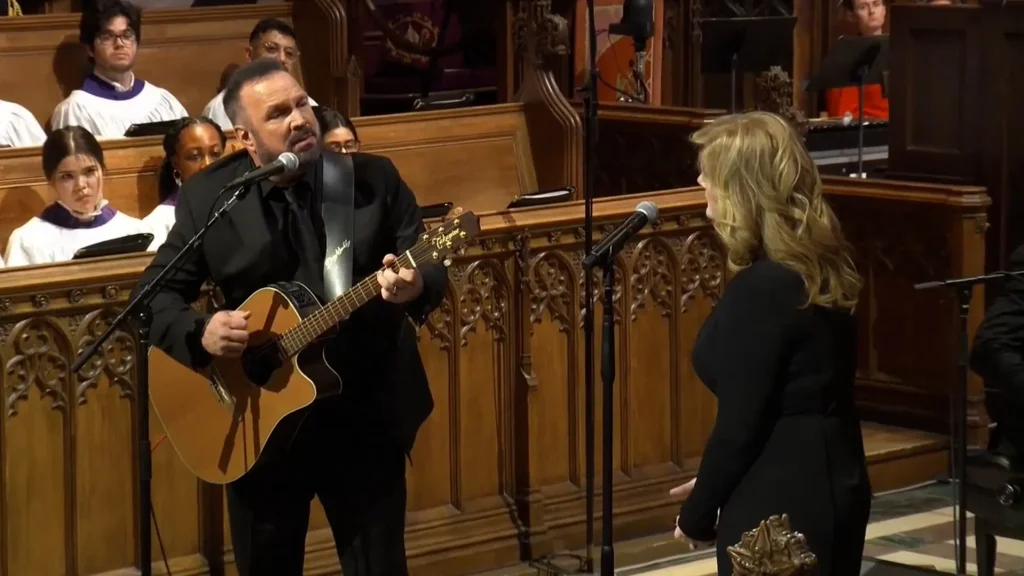

During his state funeral last week, Trisha Yearwood and Garth Brooks sung the John Lennon song “Imagine.” Why would Carter pick a song that begins:
Imagine there’s no heaven
It’s easy if you try
No hell below us
Above us, only sky
Imagine all the people
Livin’ for today
Ah
Imagine there’s no countries
It isn’t hard to do
Nothing to kill or die for
And no religion, too
Here is Brandon McGinley at the Pittsburgh Post Gazette:
For me, the worst lyric — worse than the boring atheism — is “nothing to kill or die for.” That world would be a world without sacrifice, without friendship, without love. If there’s nothing to die for, there’s nothing to live for.
The world of “Imagine” strips away everything beyond the self. The brotherhood it describes would be impossible, because fraternity requires a principle, a cause, a shared objective — something to bind people together.
But here, there is nothing.
Jimmy Carter knew this was wrong. He clearly responded to the sentimentality of the song rather than a close reading of its silly lyrics. He once said that he understands the song is “against religion,” but appreciates that “the impact it has on people is profound.” I’m not here to judge him for that.
But it’s striking how the kind of Christianity represented by Carter — absolutely sincere, yet so expansive that it included embracing its own pop-culture negation — has retreated in recent years. The truth is, it was always a product of a particular moment in history, and was never going to last.
Bringing an anti-theistic pop song into a Washington cathedral may seem very 21st-century, but it’s really the last gasp of the 20th, when America’s grand tradition of progressive Christianity thought it could metabolize secularism without losing anything of itself. Placing to one side my own theological speculations, purely as a matter of demographics this has not worked.
Jimmy Carter, by all accounts, persevered in a genuine Christianity confidently merged with secular liberalism until the very end. But in this, he is unusual. The contradictions have proved impossible to reconcile, especially for younger generations.
Churches that have attempted to preach the promises of Christ and the 1960s are aging and dying. Meanwhile, among young people especially, tradition is increasingly in vogue. In my own Catholic Church, if you want to find the young people, you’re generally going to have to follow the smell of incense, not the sound of a tambourine.
Read the rest here.
And here is John Nichols at The Nation:
Despite the song’s global resonance over the years, there were social media posts on Thursday that criticized the inclusion of “Imagine” in Carter’s funeral. Critics suggested that it was an inappropriate pick for a celebration of the life of so passionate an evangelical Christian. Lennon recognized these sorts of concerns in his lifetime, as Beatles author and historian Kenneth Womack noted, when the Library of Congress added “Imagine” to its National Recording Registry in 2023. “Lennon also cited a Christian prayer book as part of the song’s impetus,” wrote Womack. “In June 1969, he had been gifted the book from comedian and civil rights activist Dick Gregory. As Lennon later explained to [interviewer David] Sheff, the book afforded him with the key concept about the nature of ‘positive prayer’ that would inform the composition of ‘Imagine.’ ‘If you can imagine a world at peace, with no denominations of religion—not without religion, but without this “my God-is-bigger-than-your-God” thing—then it can be true.’”
Carter, a progressive evangelical who spoke about how he sought to “apply my Christian faith much more regularly to my secular life,” was well aware of the song’s message, and of Lennon’s impact as a musician and political activist.
With Ono, the former Beatle had attended the celebrations of Carter’s inauguration as president in 1977. When Lennon was murdered in New York City in December of 1980, the Georgian who was finishing his single presidential term mourned the news, with an extended White House statement that observed, “It is especially poignant that John Lennon has died by violence, though he had long campaigned for peace.”
In his later years, Carter’s appreciation of “Imagine” was much in evidence. When Georgia Tech students surprised Carter and former first lady Rosalynn Carter with a rendition of the song in 2017, the former president rose to his feet and led the applause. At Rosalynn Carter’s funeral in 2023, Brooks and Yearwood—who have worked alongside the Carters on Habitat for Humanity projects—performed “Imagine.”
The song choices at both funerals reflected the musical tastes of the Carters and their family—along with messages they hoped to communicate.
Jimmy Carter was, as his grandson Jason Carter told the mourners at Thursday’s memorial, a practical idealist who “waged peace with love and respect” and who preached “the power of human rights… not just for some people but for all people.” He was, as well, a believer in the power of music who appreciated the global reach, and influence, of a song that concluded with the words, “You may say I’m a dreamer/But I’m not the only one/I hope someday you’ll join us/And the world will live as one.”
Read the entire piece here.
The Anthem for the NWO. Yes, one world, one religion-the caveat-One Human leader, one allegiance to that one world and religion,
but especially the One Leader.
Fantasy Optical Illustrations that have a feel-good vibe. Fine.
We live in a real world, coupled with real humans that Image their Vision to be the Real –One-.
The song seemed out of place amid the hymns and setting. I turned the sound down.